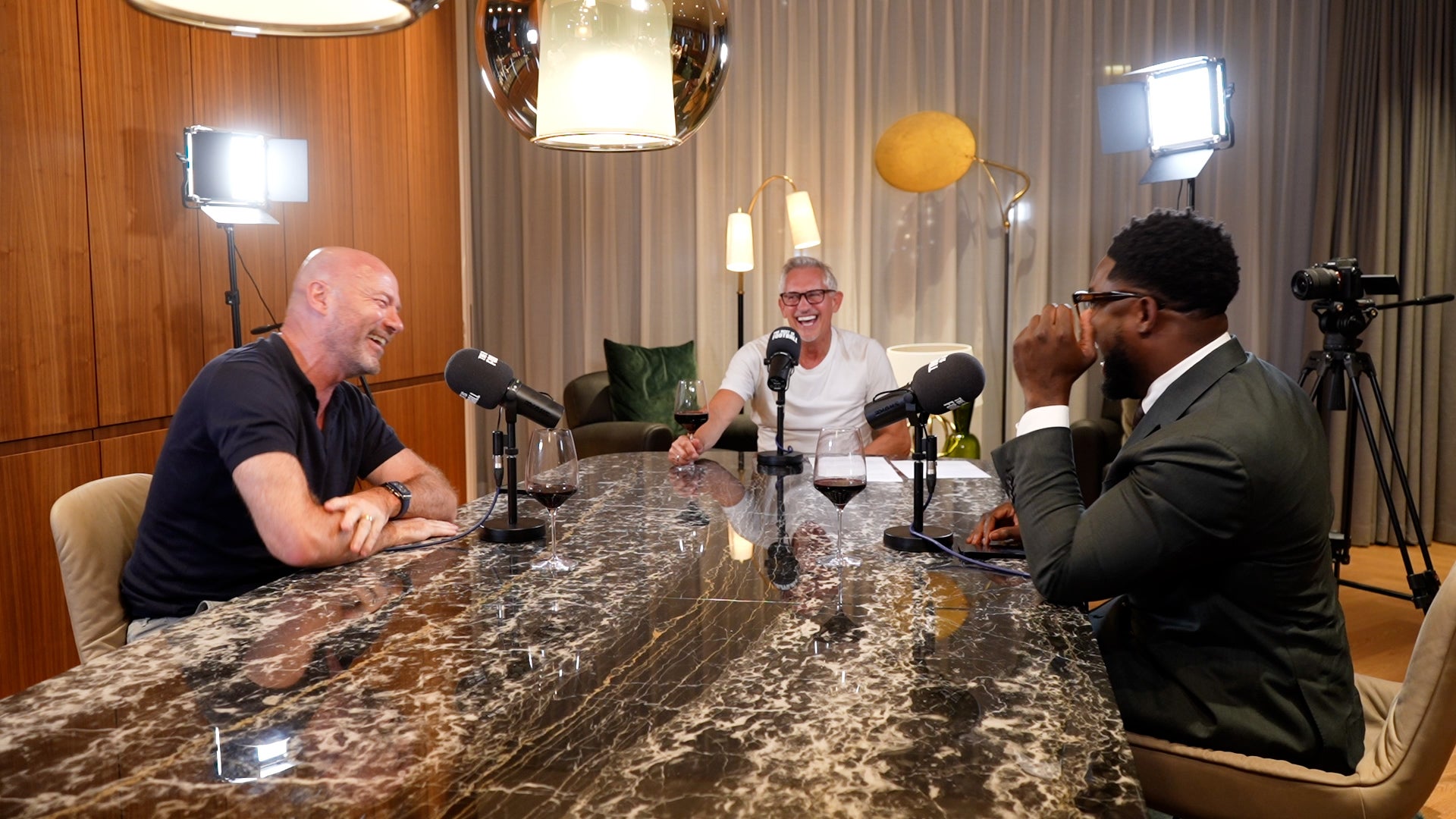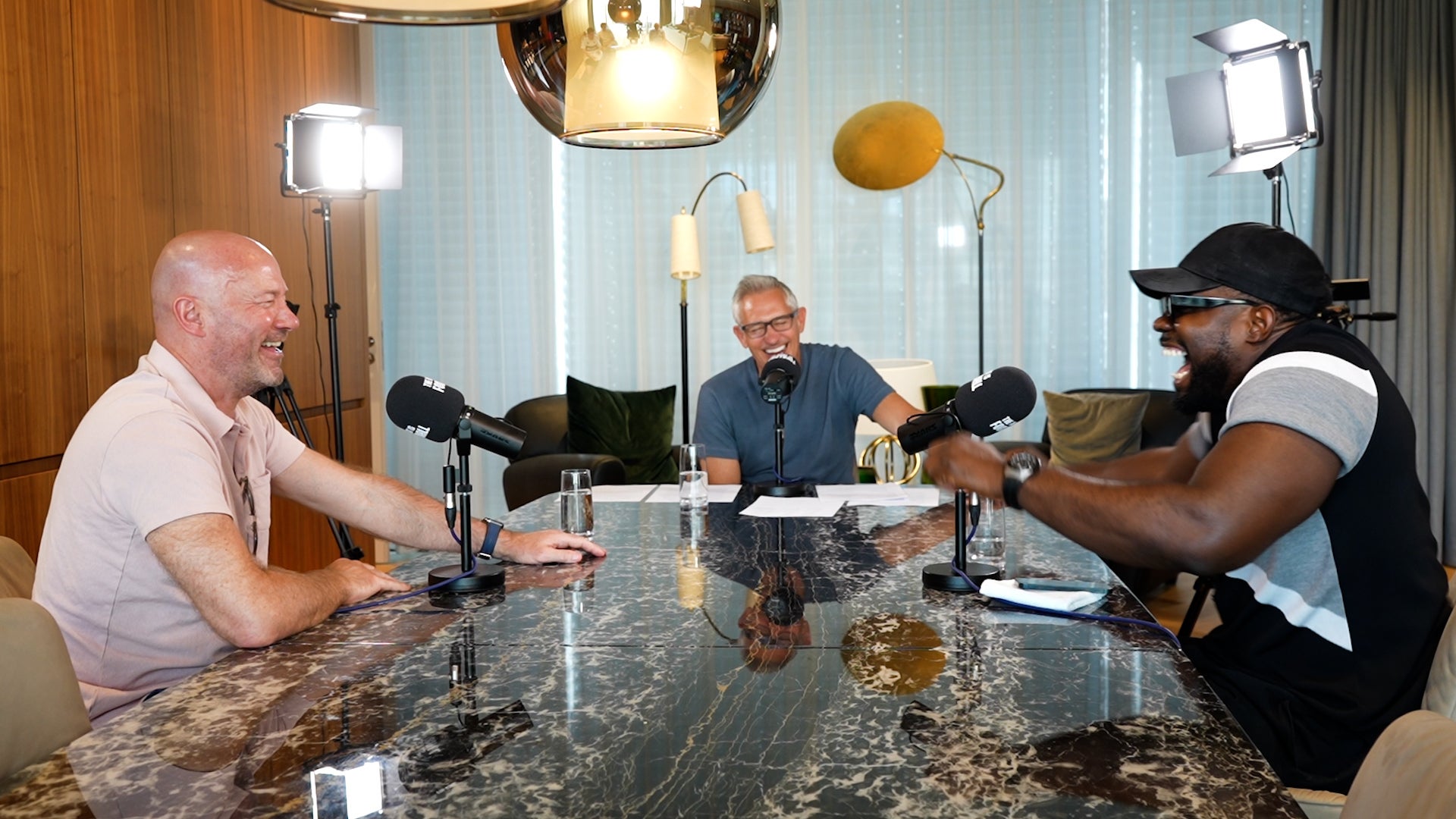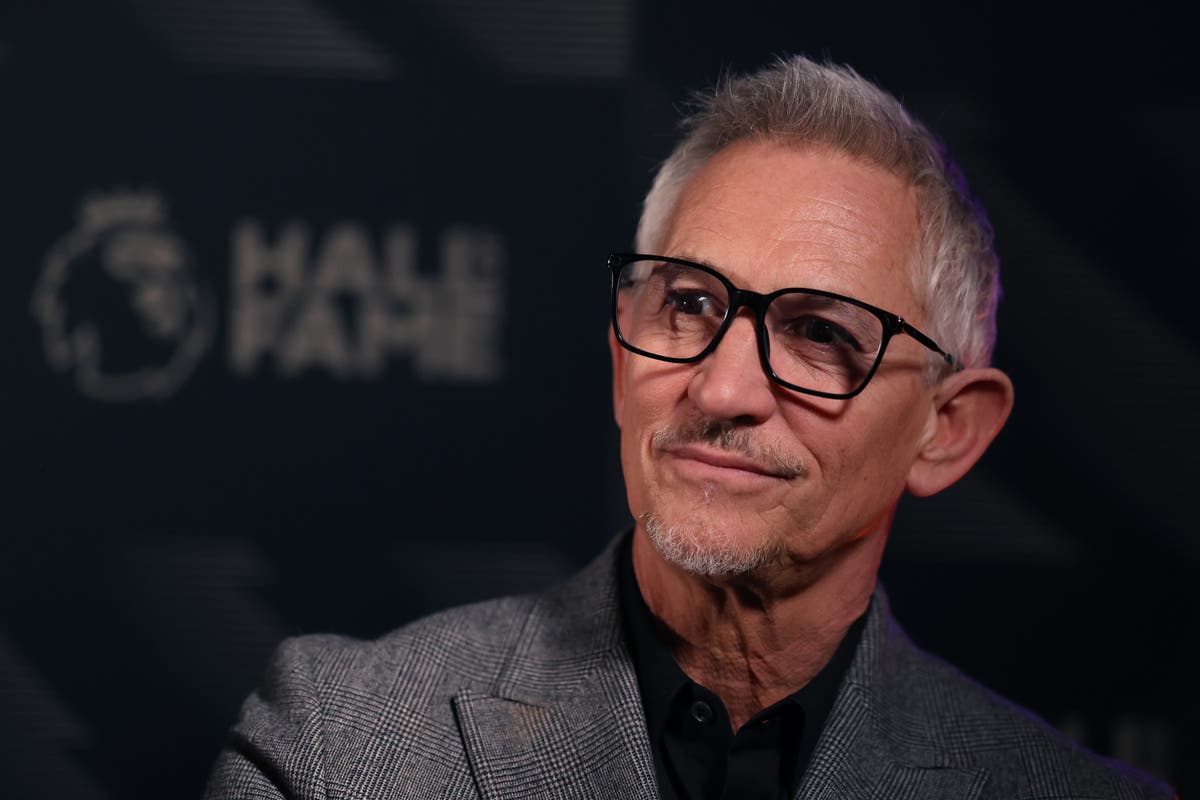Many a description has been applied to Gary Lineker over the years, from World Cup Golden Boot winner to crisp salesman. Lineker has proved a master of reinvention, from England’s best penalty-box poacher since Jimmy Greaves to Des Lynam’s successor as a host who can relax in front of the Match Of The Day cameras. In his sixties, he has been branded “woke” by those who use it as a catch-all insult. He has also emerged as an influential figure in the reshaping of the media landscape. “If I get called a podcast mogul, I take that as a compliment,” he says. “I have a company, Goalhanger, that has become almost dominant in the UK podcasting world. Did I ever envisage our company becoming as successful as it is? Of course not.”
The chances are that many listeners of some of Lineker’s stable of podcasts are unaware of his role, even if the business name reflects the career he pursued four decades ago. “We were making sports documentaries for television,” Lineker explains. “We were doing fine and then we started looking at pods a bit. We had never branched outside sports.”
But they tried a first podcast on history, then a second. “We called it The Rest Is History and since then you could say the rest is history…” Lineker says. It became “the monster it is”, The Rest Is Politics has been “a huge hit” and The Rest Is Football, reuniting Lineker with his television colleagues Alan Shearer and Micah Richards, is currently the most listened-to sports podcast on Spotify and iTunes in the UK, according to Chartable. His empire has such ubiquity that the comedian Michael Spicer joked: “I’m doing a podcast called The Rest is the Rest where I talk about every subject not covered by all The Rest podcasts.”
It would, he said, be about shoes, clouds, Tuesdays and otters. Meanwhile, Lineker has shown the impact his words on podcasting platforms can have. Along the way, the man famously never booked as a footballer has experienced a different kind of controversy.
The host of the most established football show in the country has delved into a different, newer medium. He has not left social media, but he is keeping his opinions off it; after a suspension from Match Of The Day for criticising the previous government’s asylum policy, that may be a relief to the BBC. Though, indirectly, they have Elon Musk to thank, given the toxicity of X.
“I have changed my habits on Twitter,” Lineker says. “I don’t really post my thoughts now because I think it has become not a very pleasurable experience. There was a time you could have little chats with people on there and a bit of banter but now it is impossible because before I could have chats with people I either followed or were blue-tick people but now everyone’s got a blue tick so that doesn’t work anymore. I have become a bit bored with it. It is a very unpleasant world there and Musk is clearly a very odd bloke.”
If Lineker got accustomed to being told to stick to football, he now has two forums to discuss it. The summer’s furore spanned both; he and Shearer criticised England’s display in the 0-0 draw with Denmark on television and later on their podcast. It was on The Rest Is Football that he referred to it as “s**t”, language he is unaccustomed to using on the BBC. Harry Kane delivered a measured response in Germany, while politely disagreeing with much of it and deeming their intervention unhelpful.

A couple of months on, Lineker reflects: “I don’t think the England players had any problem at all, that is the first thing to say. I think there was a bit of stirring the pot by one or two newspapers, the Daily Mail in particular, that tried to create a rift, a divide, between us and the players that didn’t actually exist at all. We have to be honest in our assessments and always will be with what we have seen with our eyes. We know now that all the players have subsequently said how poor they were in the first two games and we could all see that. The players understand that as long as you are fair and not personal that criticism is part of football but it was good for publicity, it was great for our podcast and it got more people watching us on TV.”
Certainly Lineker has a still greater reach than before. “I remember interviewing Ange Postecoglou and he told me he always listens and loves the podcast,” he notes. He sounded more like a media executive than a former footballer when discussing his listenership; the majority, it seems, too young to remember the last of his 48 goals for England.
“Our audience is skewed under 30, on average, which is great, because that is the audience everyone looks for,” he says. If that may render them profitable – and presumably gives him a substantial income beyond the BBC contract that makes headlines when the annual list of their best-paid employees is published – it is also evident that Lineker’s analytical brain, once used to evade defenders, was deployed to assess the environment.
“The podcasting world is something we know very well and we think we know what works but we were all slightly concerned with football because it is such a flooded market,” he says.
Now it gives him further options. His BBC contract expires next summer; were Jermaine Jenas deemed a possible successor, such plans have now had to be abandoned. Certainly Lineker sounds keen to extend his stay: “Match Of The Day is such an iconic show, 60 years is such a long time and I have presented it for 25 of those years.

“Podcast-wise, things have really exceeded our expectations but at the same time, I love being part of Match Of The Day, I love working for the BBC, I know it has its issues and it has its troubles but I think it’s brilliant. I think sometimes we don’t shout about how good we are at the BBC and what we offer.”
Listen to ‘The Rest Is Football‘ wherever you get your podcasts










